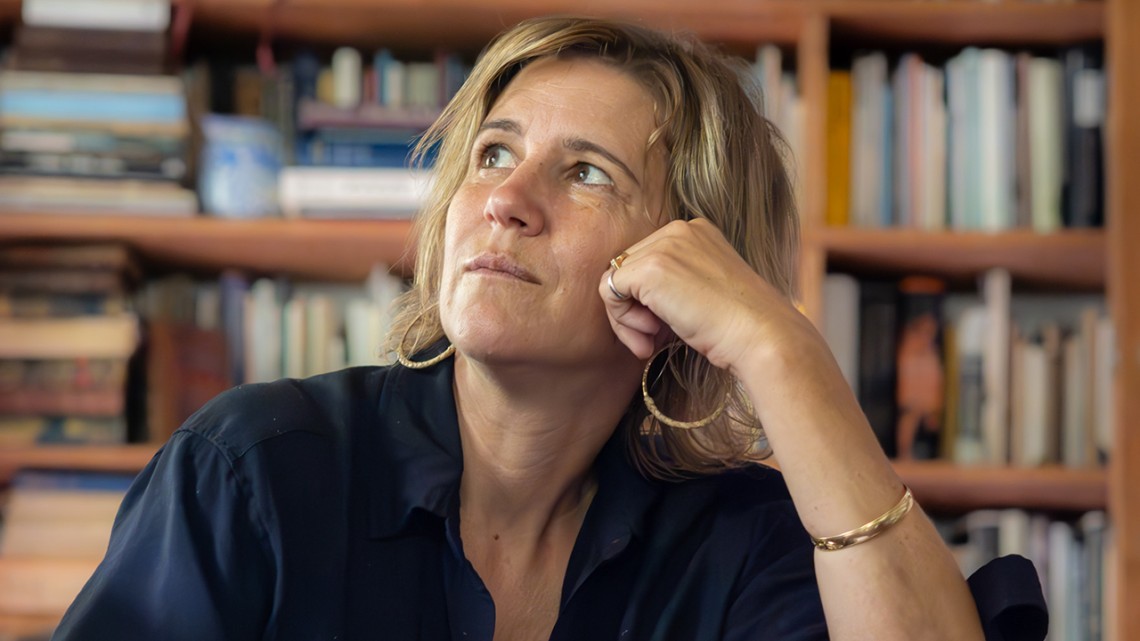
News directly from Cornell's colleges and centers
Botanic Gardens Lecture Explores the Legacy of W. S. Merwin, Poet, Conservationist, and Gardener
By Anna Hooper
For its first in-person lecture since 2019, Cornell Botanic Gardens will host Sonnet Kekilia Coggins, executive director of the Merwin Conservancy, who will deliver the 2023 William H. and Jane Torrence Harder Lecture. Her talk, which is free and open to the public, will explore the life and legacy of the Pulitzer-prize-winning poet, conservationist, and gardener W.S. Merwin. Coggin’s lecture, “What is a Garden? W.S. Merwin’s Life in Poems, Palms, and Place,” will be held on September 13, 2023, at 4:30 p.m. in Call Auditorium, Kennedy Hall on the Cornell University campus. A Garden Party reception near Cornell Botanic Gardens’ Nevin Welcome Center will immediately follow.
W.S. Merwin’s work celebrates the link between the literary and natural worlds, making him an ideal subject for the Harder Lecture. Merwin’s poetry and prose often reflected on the natural world and weaved a narrative where art and the environment became inseparable.
His residence, garden, and palm forest in Maui—now home to the Merwin Conservancy—still teems with the plants he cultivated for conservation, enjoyment, and artistic inspiration. The Merwin Conservancy is a small arts and ecology organization that conserves both the physical space that inspired Merwin and the sense of wonder that brought forth both Merwin’s poetry and garden.
“This lecture is about Merwin, what he means as an American poet, and his relation to the land he tended and restored,” said Christopher P. Dunn, executive director of Cornell Botanic Gardens. “It will be a nexus of poetry and place.”
Coggins holds master’s in education and in French Language and Literature from the University of Virginia, with an emphasis on cultural history and historical sites. Before her position at the Merwin Conservancy, Coggins worked in various museums and cultural organizations and has over 20 years of experience fostering creative, educational spaces. She was appointed as executive director of the Merwin Conservancy in 2018, where she was a friend to Merwin until his death in March 2019. Like Merwin, Coggins’ writing is inspired by nature, and she often reflects on the influence Merwin had on her life, the conservancy, and the broader worlds of conservation and literature.
In addition to winning the Pulitzer Prize on two occasions, the poet was appointed as the U.S. Poet Laureate in 2010 and received the Bolligen Prize, the Tanning Prize, and the Lannon Lifetime Achievement Award, among others.
Merwin’s work immortalized the unique beauty of Hawai’i, said Laura Brown, John Wendell Anderson Professor of English at Cornell and Hawai’i native.
“For Hawai’i and its people, Merwin has made a space of natural renewal on the island of Maui, and he gives voice to the force of the islands’ autonomy,” Brown said. “For readers and writers of poetry, he has situated the aesthetic within the ecological, and he shows the way to a new understanding of the intimacy of the literary and the botanical, now a core perspective for literary history and criticism.”
Merwin’s work also included award-winning translating. He is most known for his translations of Dante’s Purgatorio and Sir Gawain and the Green Knight.
“Through a combination of nature and words, we can find healing in ourselves and our relationships with others,” Dunn said. “I hope people leave this lecture inspired to pick up the trowel and garden, to pick up a pen and journal, or to simply look at plants differently, as Merwin might have done.”
Anna Hooper ‘25 is a communications intern at Cornell Botanic Gardens
Media Contact
Get Cornell news delivered right to your inbox.
Subscribe

